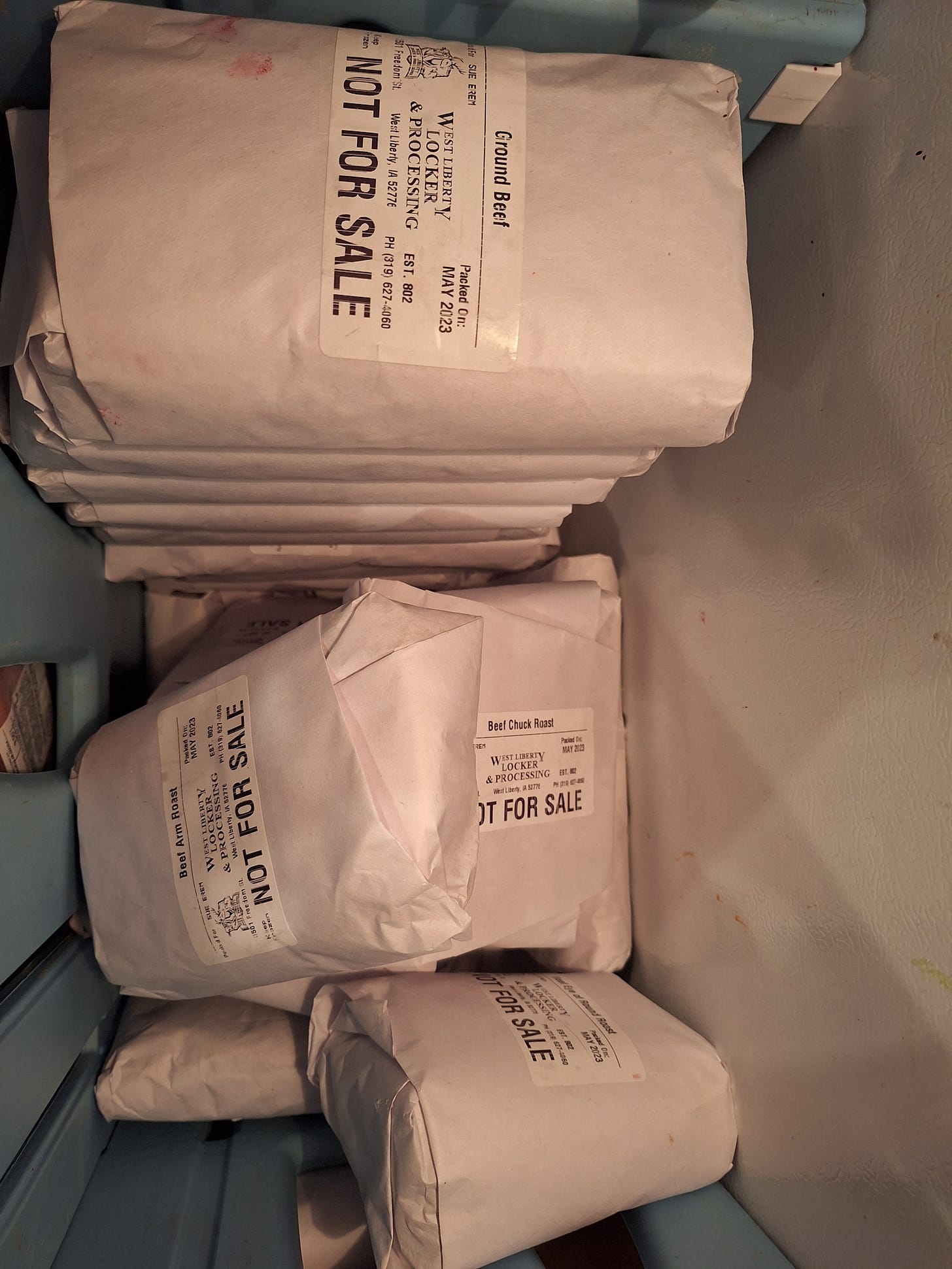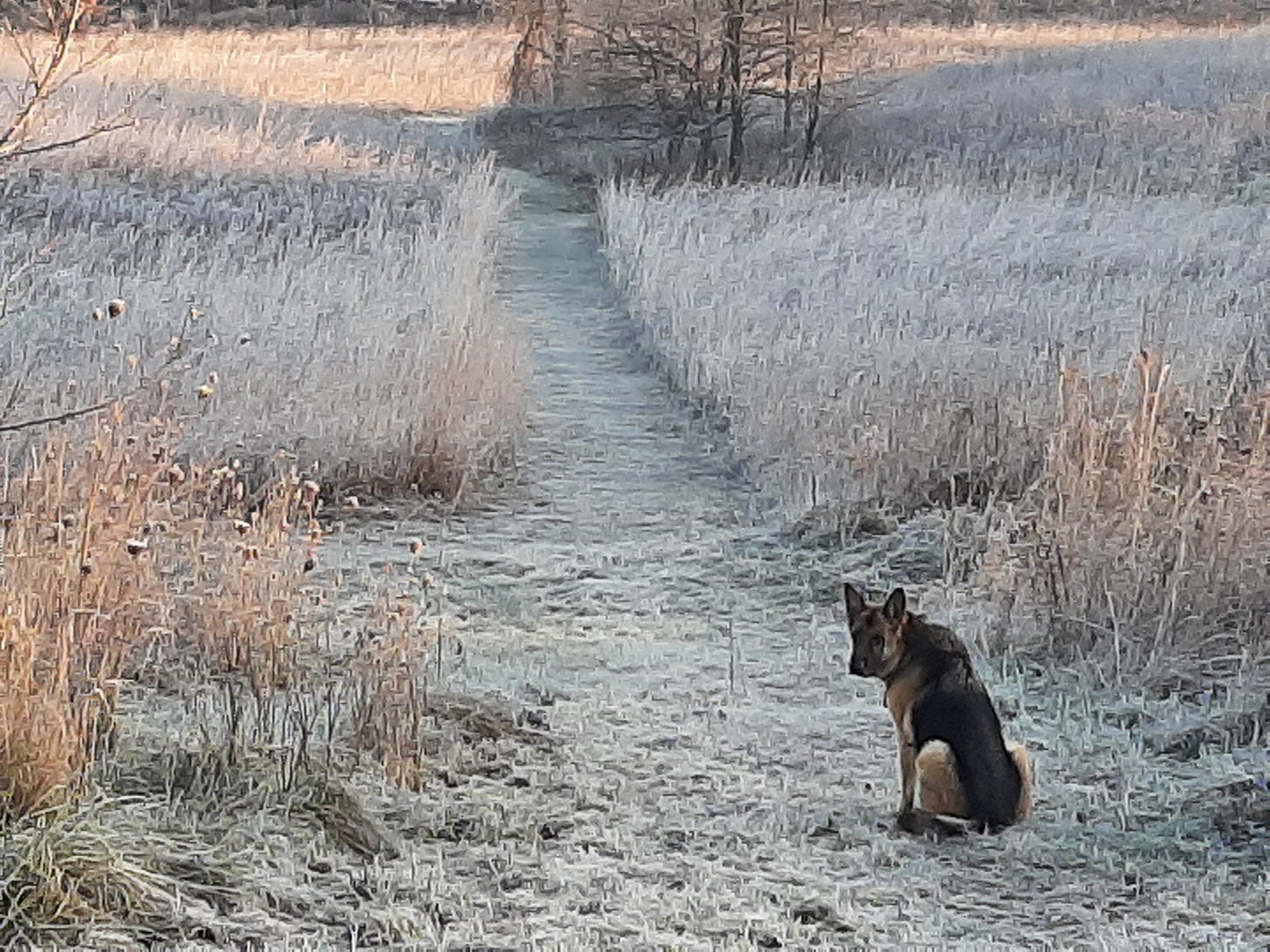“Violence: The use of physical force so as to injure, abuse, damage or destroy.” Miriam-Webster.com
This time of year, men in blue jeans and work boots pull up in their Ford F-150s with boxes of frozen stew meat, ground venison and jalapeno cheddar sausage from West Liberty Locker or Ruzicka’s. We stand in the driveway and chat. I confirm no one got shot this year. They chuckle.
The texting starts in September. Permission requested to hunt bow, muzzle loader or first or second shotgun. Maybe someone’s kid wants to hunt youth season. Sometimes we have landowner or depredation tags to distribute. I often need correcting about who hunts which. They understand taking females is a condition of hunting here, but if they get a buck well, good for them.
I didn’t know any of this before moving back to Iowa 12 years ago, but I was losing thousands of trees and a decade of effort. I was desperate.
When I was growing up on my aunt’s 40 wooded acres in Upstate New York, missing the school bus meant walking three hours down the shoulder of a narrow two-lane road to Cornwall. We were an hour’s drive north of New York City, surrounded by 300 acres owned by Black Rock Fish and Game Club. I spent my spare time playing with salamanders and crayfish in the creek. I hiked mountain trails behind the house, shooting innocuously at birds with my homemade slingshot. I was alone a lot.
For a few precious years, the German Shepherd mutts I inherited when the older kids left home were my best friends. I hiked, talked and rough-housed with them every day. That’s why one day, angry that Summa had disappeared, I cursed at Chummy with the misplaced anger of the middle schooler I was, telling her I hated her. Chummy disappeared the next day.
I searched everywhere, calling out, checking ditches and ravines, asking neighbors up and down our gravel road. Night terrors haunted me for a year, my aunt and uncle’s alarmed faces staring at me from above my bed as they shook me awake.
Sure, a neighbor down the road had threatened to kill the dogs for getting into his chickens and teenagers drag raced down Rte. 32 in front of our house, but hunters from New York City violated our property boundaries every winter. I blamed myself, sure, but mostly I blamed those hunters for bringing death to my backdoor.
So when, as an adult, I bought 75 acres on the Cedar River, I wanted no hunters, no death. Yet I knew I couldn’t keep them out. I was stuck working in Chicago, a place my first husband had - 9 years earlier - called a “stepping stone” back to Iowa from a dream he’d chased out East. This land purchase became my stepping stone to my new life. First step, don’t fool myself. I would address the hunting once I moved onto the property, whenever that time came.
Meanwhile, my real estate agent encouraged me to go to the Cedar County USDA office. I learned my land was eligible for government programs that would transform this chemically-addicted corn and soybean farm into prairie and trees. With the help of a Natural Resources Conservation (NRCS) agent, a state forester and a local nurseryman, I entered the world of conservation.
That world is a social, economic and environmental universe I had never imagined, one that comes, surprisingly, with its own violence, death and now gift every Christmas.
We humans organize ourselves into orbits, bubbles and universes. There was a time when the World Wide Web was one of those, a parallel universe where the very first Amazon and LinkedIn adopters played while the rest of us still shopped, talked and worked in person. Now that the whole world really is on the web, we operate under the myth that we’re all connected.
Let’s stop fooling ourselves. If you don’t know when second shotgun is this year or befriend neighbors because your life may depend on it, if you don’t own a generator or stop flushing when the power goes out, then you’re in a different universe from me, just as I am from the one I occupied in Chicago, or as a student at the University of Iowa or coming of age in Upstate New York.
We’ve lost respect and even interest in worlds that are not our own, seem hostile or don’t make sense to us, worlds like ours that are self-contained and self-sustaining, existing without judgement or politics or anyone’s permission. Church-goers. Atheists. People with disabilities. Caregivers. Young parents. Grandparents. City people. Community volunteers. Small town residents. People who define themselves by their work or their passions. People who have no work or passion. Locals. Transplants.
Living here and navigating these relationships forces me remember they’re all out there, circling one another, gliding past one another, seldom curious enough to stop and get to know one another. When I started scheduling hunters it took me into an uncomfortable, unfamiliar place. Whether they supported Bernie, voted for Trump or both, apply anhydrous every year, camp in the Grand Canyon or both, we found common ground in a most unexpected place.
The government helped pay to plant six acres if native oaks, black cherries and black walnuts between the corn fields and the river so their roots would filter farm chemicals out of rain water as it moves through the ground into the river. Then the feds pay “rent” for 15 years to keep those trees growing. It’s called a riparian buffer. Planting one began my new relationship with hunters, a gift exchange I couldn’t have imagined.
Within a couple of years, thousands of perfectly planted 12-inch saplings were clearly failing to thrive. Closer inspection showed evidence of an air assault. The tips of nearly every little tree were shredded by munching 300-pound herbivores. The entire planting was becoming a Bonsai farm.
In a surreal betrayal of my younger self, I asked around for names of hunters I could trust. I enlisted a couple of them, yet the deer damage continued. When my (second) husband Paul and I finally moved back to Iowa a dozen years later, we watched herds of fearless deer stroll across horizon with impunity.
This was war. I more actively recruited more hunters for more seasons. That Fall, pickup trucks parked at the entrances to our land, guns went off, deer went down. Young trees took a metaphorical deep breath and stretched. We caged them 30 at a time and up they sprang!
Millions of buffalo hooves carrying thousand-pound beasts once beat the ground into pulp across the Great Plains, fertilizing it as they went. From that injury prairie grew. Tens of thousands of Native Americans set that prairie on fire to plant crops, then moved on. That damage built soil. Lightning strikes caused fires that roared through timber. That destruction allowed sunlight to reach the ground in those woods. Our natural world builds itself upon massive acts of violence we euphemistically call “disturbances.” Yet with every violent act, mammals, reptiles, insects and plants die to make way for the next. When I came to understand that, everything got easier.
More than a dozen men now hunt our farm, contributing their own violence to the system. They’ve become part of a universe that maintains a balance between plants and animals, non-native and native, (and the human equivalent – local and transplant), even old and new on our tiny piece of paradise. In their alternate universes, they are pro golfers, volunteers, health care reps, firefighters, husbands and grandparents. I’m only a part of just this little universe on my driveway, where we catch up for a bit, sometimes with the truck still running.
Meanwhile, our trees have grown tall, woodland flowers bloom beneath them in the Spring, our land no longer pollutes the Cedar River and our chest freezer is full of meat heading into winter. As for the deer, they no longer die the long slow death from starvation and illness they did when fewer natural predators couldn’t keep up with them.
I don’t want to believe this, but I can’t refute it: Violence can support life.
The annual ritual of scheduling hunters continues to give. Every time they negotiate coveted hunting places and times with each other, donate venison to homeless shelters or share their stories both of success and the ones that got away, everyone in our little universe gets a dose of all-too-rare respect, kindness, generosity and human connection.
I never saw that coming out of a shotgun or a bow but there it is, a gift we give every Fall and one we receive every December.
Merry Christmas and Happy Holidays!






